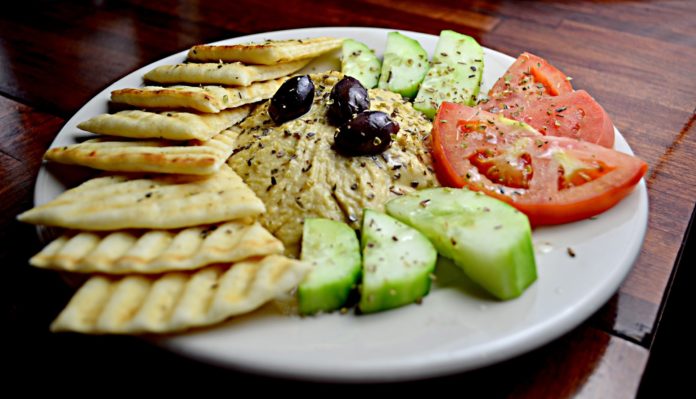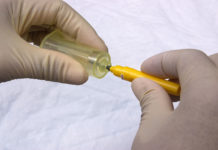
Following a “Mediterranean” diet in the six months before assisted reproductive treatment can significantly better chances of becoming pregnant and giving birth to a live baby suggests new research published in the journal Human Reproduction.

Researchers asked women about their diet before they underwent in vitro fertilisation (IVF) treatment and found that those who ate more fresh vegetables, fruit, whole grains, legumes, fish and olive oil, and less red meat, had a 65-68% greater likelihood of achieving a successful pregnancy and birth compared to women with the lowest adherence to the Mediterranean-style diet.
The study assessed the diet of 244 women via a food frequency questionnaire when they enrolled at an Assisted Conception Unity in Athens, Greece, for their first IVF treatment. The questionnaire asked them about how often they ate certain groups of food in the preceding six months; the results gave the women a MedDiet Score, which ranged from 0-55 with higher scores indicating greater adherence to the Mediterranean diet. The women were aged between 22-41 and were non-obese (body mass index of less than 30 kg/m2).
Researchers, led by Associate Professor Nikos Yiannakouris at the Department of Nutrition and Dietetics at Harokopio University of Athens, divided the women into three groups depending on their MedDiet Score: the first group had scores between 18 to 30, the second scored between 31-35 and the third group scored between 36 to 47.
They found that compared to the 86 women in the highest scoring group, the 79 women in the lowest scoring group had significantly lower rates of pregnancies (29% versus 50%) and live births (26.6% versus 48.8%). When the researchers looked at women younger than 35 years old, they found that every five-point improvement in the MedDiet Score was linked with an approximately 2.7 times higher likelihood of achieving a successful pregnancy and live birth.
Overall, 229 women (93.9%) had at least one embryo transferred to their wombs; 138 (56%) had a successful implantation; 104 (42.6%) achieved a clinical pregnancy (one that can be confirmed by ultrasound); and 99 (40.5%) gave birth to a live baby.
“The important message from our study is that women attempting fertility should be encouraged to eat a healthy diet, such as the Mediterranean diet, because greater adherence to this healthy dietary pattern may help increase the chances of successful pregnancy and delivering a live baby,” said Prof Yiannakouris.
The researchers did not find any association between diet and the chances of successful pregnancies and live births among women aged 35 and older. However, they believe this is because hormonal changes, fewer available eggs and other changes that women experience as they get older could mask the influences of environmental factors such as diet.
Prof Yiannakouris said: “The fact that in our study a favourable effect of the Mediterranean diet was evident only among women younger than 35 years doesn’t mean that eating a healthy diet is not as important for older women. Our results suggest the need for additional research not only among older women, but also among women with obesity problems and in women conceiving naturally.”
The researchers say that their findings cannot be generalised to all women trying to become pregnant, nor to obese women or women attending other infertility clinics around the world. They point out that their findings show that a Mediterranean diet is only linked to improved IVF outcomes and they cannot show that it causes the improved chances of pregnancy and birth.












